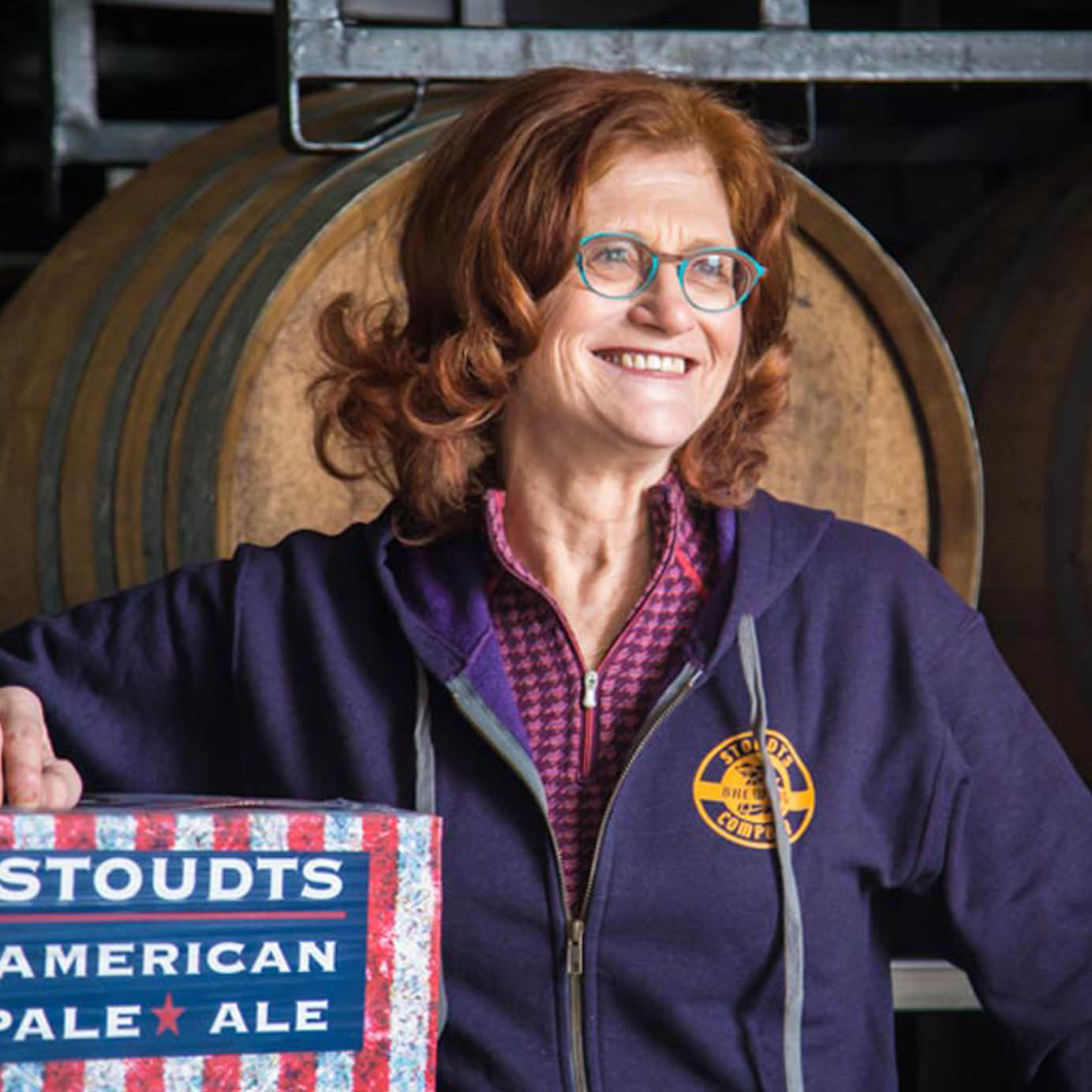Carol Stoudt is a living legend. Dubbed the Queen of Hops, she rules a small craft beer kingdom in Adamstown, Penn., a Pennsylvania Dutch-descended pocket of the state. At the center of her empire is Stoudts Brewing Company, a destination brewpub she founded in 1987.
Industry insiders celebrate Carol as a pioneering visionary, but those who dwell in lands outside her region’s borders may not have heard her heroic tale, or tasted the beer that’s guided it. With a brewery as her castle — antique-filled, dimly lit, and decorated with decades’ worth of beer relics — Carol has served as brewmaster, salesperson, and mentor, and is the first female in the country to do so. Anne Becerra, New York’s first female Certified Cicerone, cites Carol as an inspiration, lending credence to the phrase emblazoned on the brewery’s new cans: “Led by Carol Stoudt, the mother of craft beer.”
Since Stoudts Brewing Company launched in 1987, more than 300 breweries have opened in Pennsylvania. Carol, now 69 years old, remains at the helm. Her operation remains successful because she combines brewing expertise with business savvy. She scaled back distribution when many craft breweries mistakenly over-expanded, and she relentlessly prioritizes her local market.
Stoudts is a family business. And, in this case, mother really does know best.
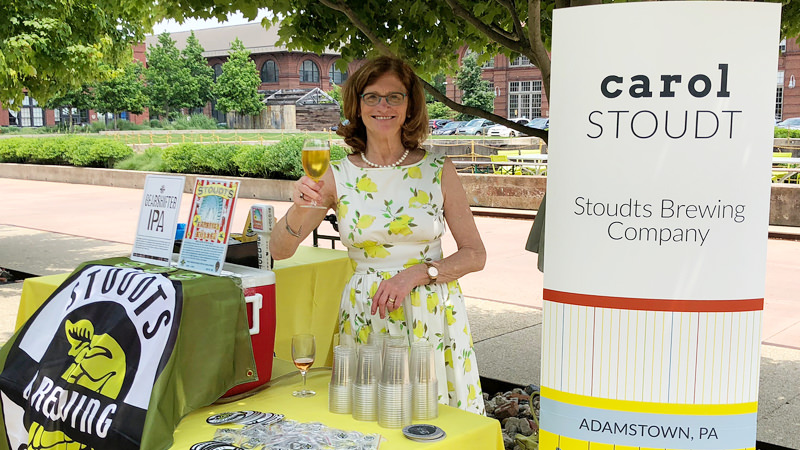
Surrounding Stoudts Brewing Company are a restaurant and beer garden run by Carol’s husband Ed; a bakery run by their daughter Elizabeth; and an antique shop. Another daughter, Carey, covers design, marketing, and events. (Carol has five children in their 30s and 40s.)
Before deciding to run a brewery in the mid-1980s, Carol was second in command at the family restaurant started by her husband Ed in the 1960s. In 1979, the couple added a beer garden to celebrate their German heritage. By 1984, they realized something was missing: their own beer.
Brewpubs didn’t become legal in Pennsylvania until 1989, and Carol says a married couple couldn’t legally own both a restaurant and brewery. So Carol did the only thing a beer-loving pioneer could do: She set out to open Stoudts Brewing Company as a sole proprietor.
She separated financially from her husband, began researching and visiting breweries across the country, and hired Karl Strauss (himself a brewing legend and the namesake of the eponymous San Diego brewery) as a brewmaster consultant. With him, she learned to brew German lagers and had a brief stint brewing at the Abita Springs Brewery in Coventry, La. “After that, I did everything on my own,” she says.
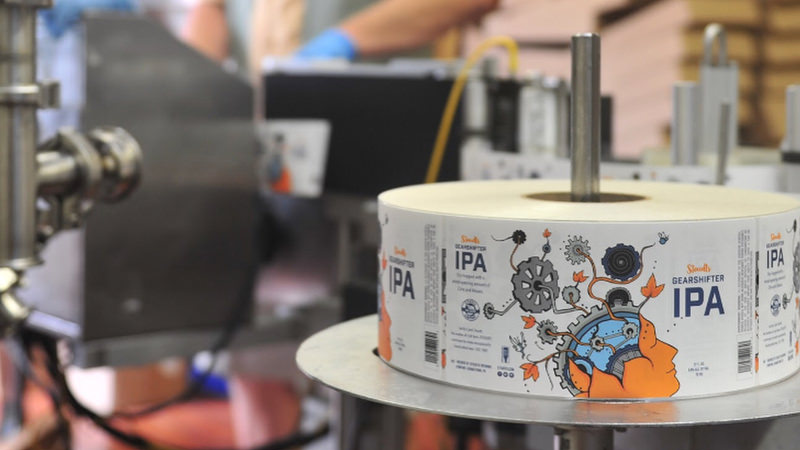
Three years later, in 1987, Stoudts Brewing Company was born. At the time, the independent beer landscape was scarce. Women in the industry? Even scarcer. For the better part of two decades, Carol says, “I was the only female involved in brewing, in production, even in sales of beer.” All of which, by the way, she handled on her own. “It took me 10 years to get my first draft account in Lancaster City,” a town 20 minutes away, she says.
But she didn’t let others’ skepticism get the best of her, even when male bar owners openly wondered why a woman was out selling “her husband’s beer.”
She even made it a mission to visit every microbrewery that opened, traveling to Great Lakes Brewery in Cleveland, Ohio; Goose Island in Chicago, Ill.; Weeping Radish in Grandy, N.C., and Harpoon Brewery in Boston, Mass. “It was important to support the new kids on the block,” she says.
Treating other craft brewers as community, not competition, paid off. By the late 1990s, Stoudts beer was in 13 states.
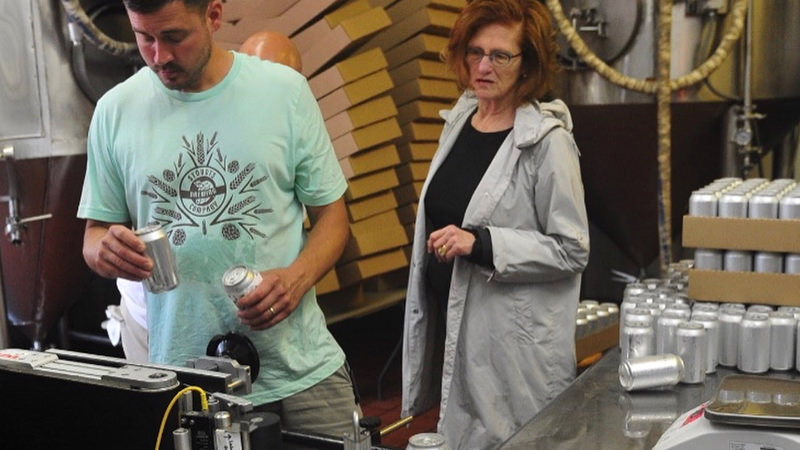
As the craft beer industry blossomed around her, Carol smelled the roses — and detected the need “to deepen the trenches” in her home state, she says. “As more local breweries pop up, there’s no need for me to be in those markets.” She pulled back distribution around 2015 to bring her beer closer to home. “I never wanted a factory,” she says. “I like small. It’s kind of my philosophy.”
Although Carol is no longer selling beer door to door, when she’s not brewing, she’s often on the road, sharing her wisdom across state borders.
“I always get so excited when Carol is in town, because I genuinely enjoy talking to her,” Becerra, Certified Cicerone and beverage manager at New York City’s Treadwell Park, says. “I kind of always forget what a legend she is because she’s such a nice person with such a deep knowledge and passion for what she does.”
In August, she spoke on a panel as part of the Beer With(out) Beards Festival in New York, and in September, she served as a judge at the Great American Beer Festival in Denver.
“Judging with her was really awesome [because] she’s one of the original ladies of beer,” Em Sauter, Advanced Cicerone and founder and cartoonist of the website Pints and Panels, says. “Listening to her passionately discuss her thoughts on beer was really inspiring.”
Ask anyone who knows Carol, and they’ll tell you she brings excitement and encouragement wherever she goes.
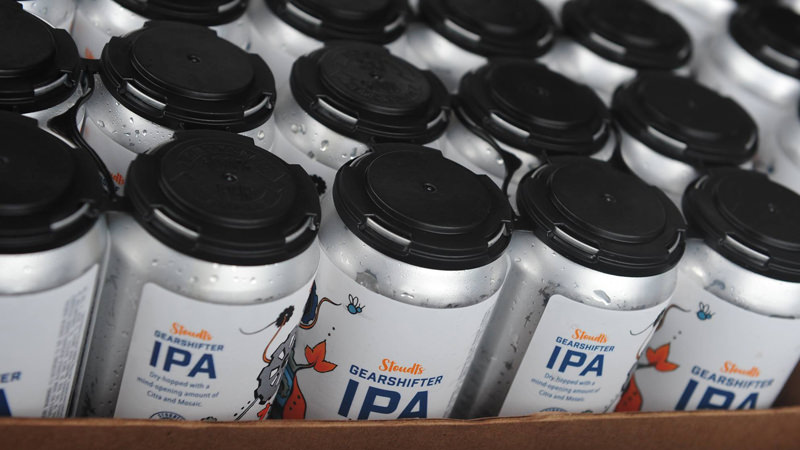
In August, Carol became the first recipient of the Presidential Award given by state trade group Breweries in Pennsylvania (BOP). The BOP presented the award at the 2018 Meeting of the Malts in Bethlehem, Pa., “in recognition of and appreciation for outstanding achievement and extraordinary contributions to the Pennsylvania Craft Beer Industry.”
BOP president Chris Lampe said: “Carol has been an industry trailblazer for over three decades and has had a significant influence on women getting into the craft beer business. Every Pennsylvania brewer can find her persistence, dedication, talent, and longevity inspiring.”
These days, Carol says, she’s been brewing “more than I have in a long time” and focusing her efforts on her favorite part of brewery production: recipe development. The brewery recently installed a 2-gallon experimental system, and its most recent release, in freshly minted cans, is Gearshifter, a dry-hopped IPA made with coveted Citra and Mosaic hops.
But Carol believes there’s still a place in the world — or at least in Pennsylvania — for traditional styles like saisons, weizens, and witbiers, which she plans to can next summer. She thinks big and stays small, supporting her community and innovating in her own way.
Her position on the hazy IPA craze? “Come on,” she says. “There’s more than that style.”
